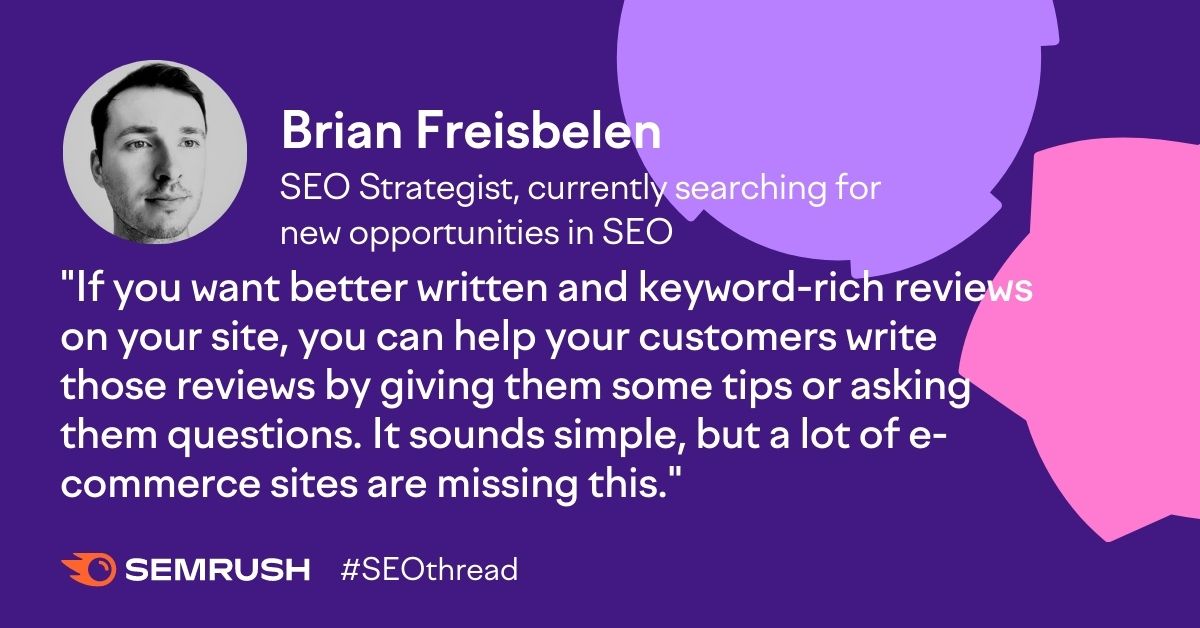
If you’re an e-comm SEO, you know that product reviews are everywhere and are being pulled into search results more than ever. Bolded words, colorful star ratings - a well-written review can go a long way. Quick thread ↓ for driving well-written reviews.
#SEOThread @type_SEO
#SEOThread @type_SEO

We’ve all seen a “good” product review that wasn’t helpful at all. A five-star review doesn’t mean much when there isn’t a clear explanation to go along with it.
#SEOThread @type_SEO
#SEOThread @type_SEO
If you want better written and keyword-rich reviews on your site, you can help your customers write those reviews by giving them some tips or asking them questions. It sounds simple, but a lot of e-commerce sites are missing this.
#SEOThread @type_SEO
#SEOThread @type_SEO

To do this, consider creating a landing page with review tips and link to it above your product review boxes. Or maybe you could ask your customers some questions above your review boxes to help guide their review.
#SEOThread @type_SEO
#SEOThread @type_SEO
Ask customers, “Did you find the product to be well made?” “Is the product reasonably priced?”. Depending on the product, you can be more detailed with these questions, and you can potentially get creative to promote specific keywords in your reviews.
#SEOThread @type_SEO
#SEOThread @type_SEO

For example, let’s say you have a product page for trail running shorts. Maybe you’d want your customers to comment on key attributes like the comfortability, the breathability, or the durability of the shorts in their review.
#SEOThread @type_SEO
#SEOThread @type_SEO
There’s no guarantee this will push your customers to leave a positive, well-written review. But, it'll increase the odds of reviewers using keywords you consider are crucial for selling more of that product, and potentially lead to more visibility in search.
#SEOThread @type_SEO
#SEOThread @type_SEO
We can even see that Google is using refinement bubbles to group common review keywords in the shopping results tab of Google. Asking your reviewers questions to prompt these keywords could also put you in a better position to align with this feature.
#SEOThread @type_SEO
#SEOThread @type_SEO

On top of that, you’re helping your customers. That should always go hand in hand with SEO.
#SEOThread @type_SEO
#SEOThread @type_SEO
E-comm SEOs and Marketers, have you tested this out? If not, will you? Leave a reply with your thoughts!
#SEOThread @type_SEO
#SEOThread @type_SEO
• • •
Missing some Tweet in this thread? You can try to
force a refresh









